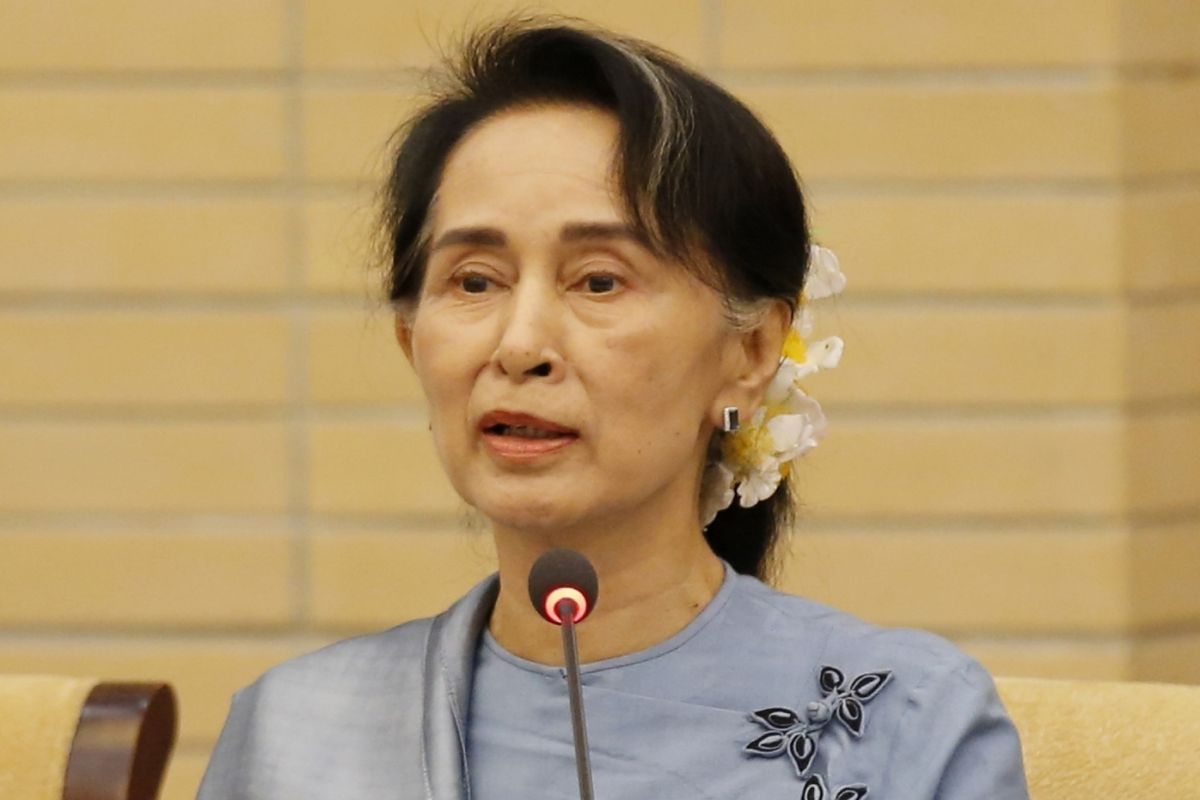The Myanmar junta has proven over the past four months that a grotesque fantasy is easily brought to fruition in the absence of a moral compass among those who seek to impose their will on a people.
As the world watches idly, making noises which amount to nothing, the more surreal aspects of February’s military coup highlighting an absence of even elementary humanity have come to the fore, which have resulted in a brutal army crackdown that has included shooting unarmed protesters, arresting suspected dissidents in night raids, shutting down news outlets, and rounding up journalists.
Advertisement
More than 880 civilians have thus far been killed, estimates a local monitoring group.
The Aung San Suu Kyi-led National League for Democracy (NLD), which won the general election by a landslide last year, has been the main target of both the junta’s ire and, quite literally, its line of fire.
On Tuesday, 76-year-old Ms Suu Kyi, Nobel laureate and daughter of independence hero General Aung San, appeared in a junta court ~ she has been largely invisible to the outside world save a handful of courtroom appearances and remains under house arrest ~ to answer a raft of prima facie trumped-up charges laid against her by the authorities for which she could spend over 10 years in prison if convicted.
Her only message to her fellow citizens was to stay “consistent and united”.
In the face of an unrelenting, and seemingly unending night of the generals, Ms Suu Kyi has in her words and actions once again underlined her commitment to the national interest and shown that her spine is made of steel.
Whether taking on her nation’s rogue army sans violence or the fickle liberals of the woke West who turned on her viciously when she was willing to look at both sides of what went down in Rakhine state, she has been the constant gardener planting the seeds for a democratic, accommodative and liberal country.
India has, despite the urging of informed quarters, till now missed the chance to play honest broker in resolving the crisis in Myanmar.
However, given New Delhi’s close working relationship with the military nurtured over two decades and its traditionally warm relationship with the NLD leadership, it is perhaps still not too late to get involved. Especially, as Beijing is seen as being far too pro-junta to play a constructive role. If the world is to come around to Ms Suu Kyi’s decade-long position of working with the military while incrementally democratising institutions in Myanmar, which may really be the only realistic way forward, India’s role could be vital.
In the interim, Myanmar’s military rulers would do well to keep a window open for reconciliation. A repressive regime can down its shutters to the world for only so long.









